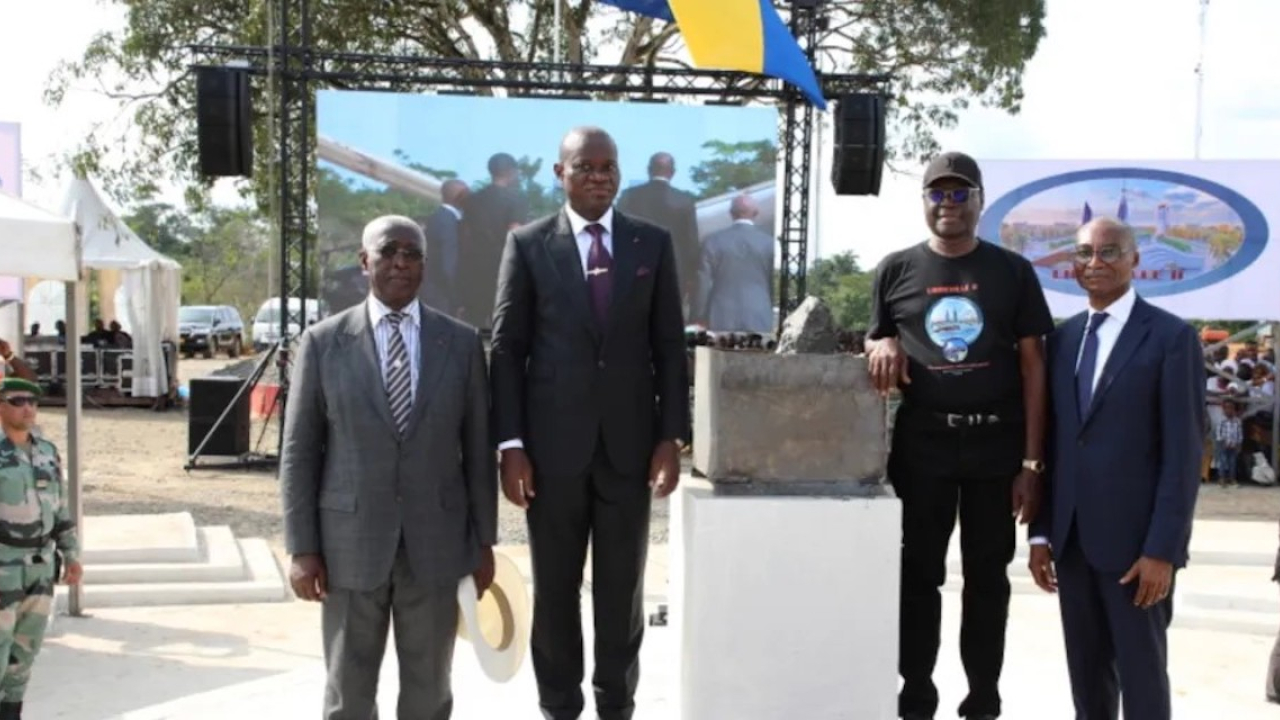Unions come out fighting over Nigeria airport privatisation plans
A row has broken over Nigeria’s plans to hand over major international airport terminals to private operators.

Up in arms: (from left) Frances Akinjole, deputy general secretary, ATSSSAN; Ocheme Aba, general secretary, NUATE; and Abdul Rasaq Saidu, secretary general, ANAP, at a press conference in Lagos to kick against the government’s approach to airport terminal concessions.
When Nigeria’s minister of aviation, Hadi Sirika, assumed office in 2015, he announced the government’s plans to hand over some major international airport terminals to private concerns under concession arrangements. Chukwu Emeke reports.
The airports involved were Nnamdi Azikiwe International in Abuja, Murtala Muhammed International in Lagos, Port Harcourt International, and Kaduna International.
The ministry of aviation is proceeding with the concession processes but the various aviation unions, and some other stakeholders, are up in arms.
They question the appropriateness of the decision in the ‘new normal’ world ushered in by the Covid-19 pandemic, and accuse the minister of violating the standard procedures for such a venture.
As part of the required procedures for a privatisation process, a project delivery team (PDT), including representatives of the aviation unions, was set up by the government.
Subsequently, a certificate of compliance has been produced by the Infrastructure Concession and Regulatory Commission (ICRC). However, the unions claim they have had no involvement in the process that produced the certificate.
They also allege they have had no input into the appointment of technical advisor for the project, which they claim has already been made.
Now the unions – the National Union of Air Transport Employees (NUATE), the National Union of Pensioners (NUP), the Air Transport Services Senior Staff Association of Nigeria (ATSSSAN), and Association of Nigerian Aviation Professionals (ANAP) – have made their case to the press.
In a joint statement signed by Ocheme Aba, Abdul Rasaq Saidu, and Frances Akinjole, who represent NUATE, ANAP, and ATSSSAN respectively, the unions said rather than concession the airports, the government should adopt a greenfield approach that would allow new investors to handle the airports like fresh ventures and, consequently, undertake construction of new runways and terminal buildings, among others.
In addition, the Federal Airports Authority of Nigeria (FAAN) could be corporatized in such a way that the Federal Government retains 45% equity share, while the remaining 55% was broken down for public acquisition – the model adopted in some other countries in similar circumstance as Nigeria.
Sceptics of the government’s proposed airports concession plan are apprehensive because of past experiences of private public partnership (PPP) arrangements that ended in prolonged litigations.
The first airport terminal build, operate and transfer (BOT) arrangement in Nigeria was at Murtala Muhammed International Airport terminal 2 (MMA2). Speaking at a recent webinar, Wale Babalakin, chairman of Bi-Courtney Aviation Services Limited (BASL), which manages MMA2, related his experience and issued a warning.
“Before another concession arrangement, it is important that the authorities decide to have a proper concession process,” he said. “We have spent 13 years trying to enforce the MMA2 agreement. Today, we have only about 30% of our rights in the agreement executed and only about 40% of the scheduled traffic."
“Under the plan, by now, we should have finished phase 2 of MMA2. However, we were not given access to the land. Arik was claiming ownership, even though we had the agreement document. So, in doing a concession, please, follow the law, especially if the bidders are foreigners.”
The ICRC’s head of aviation, Yusuf Haruna, pointed out at the forum, which was organised by the Aviation Safety Round Table Initiative (ASRTI), that it was the first time the aviation unions had been represented on the PDT and that this had been at the request of minister Sirika.
In his contribution, Sirika said the concession was intended for assets to be improved upon.
“For a good product to be delivered to the people, it has to be given into private hands, while the assets remain with the Nigerian people,” he stressed. “The government wants the best of services delivered to the people. The government has no money to do what a concessionaire should do.”
Participants agreed that the planned concession was necessary but that the controversies surrounding previous agreements should be resolved before moving on to sign new concession arrangements, so that future interested investors would not be discouraged.
Stay up to date
Subscribe to the free Times Aerospace newsletter and receive the latest content every week. We'll never share your email address.

